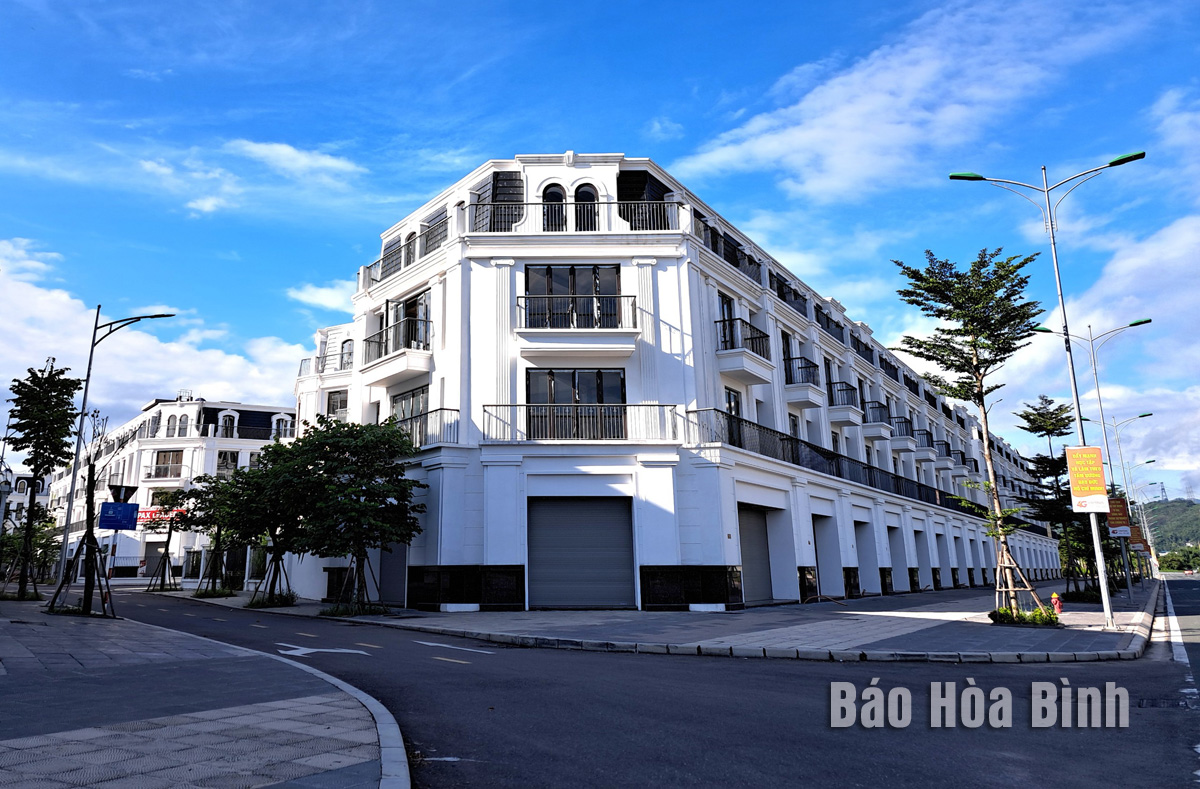The State budget collection in Hoa Binh province has received constant attention and directions from the provincial Party Committee, People’s Council and People’s Committee, the Ministry of Finance and the General Department of Taxation, along with effective coordination from all-level administrations and sectors.
By the end of May 2024, the state budget revenue was estimated at 2.88
trillion VND (nearly 113.23 million USD), equivalent to 71% of this year’s
target set by the Prime Minister, 50% of the target set by the provincial
People’s Council, and 196% of the figure in the same period last year.
Hoa Binh has
recorded relatively good budget collection from many sources such as the
foreign invested sector, the industry, trade and non-state sectors, personal
income tax, environmental protection tax, charges, fees, and land use fees.
The state budget collection so far this year has
posted breakthroughs compared to the same period last year. However, it is a
fact that revenue sources remain unsustainable and still depend much on land
use fees and the Hoa Binh Hydropower Company. Meanwhile, tax arrears remain
very high. Two-thirds of the 2020 - 2025 tenure has passed, but Hoa Binh failed
to achieve the budget collection targets for some years. Therefore, it is hard
to reach the revenue target of 10 trillion VND for 2025.
At many forums and meetings, the provincial
Party Committee, People’s Council, and People’s Committee discussed causes of
the poor performance in budget collection. One of the main causes is that the
nurturing of revenue resources remains limited. Changes in the collection
policy in recent years also form one of the causes. Others include the slow
implementation of industrial park and cluster projects, ineffective investment
attraction, some investors’ weak capacity, and businesses’ small and medium
sizes, limited financial capacity, and slow recovery from impacts of the
COVID-19 pandemic.
The state budget collection plays a highly
important role in ensuring resources for local socio-economic development.
Increasing the revenue aims to improve the quality of people’s life, build
modern and comprehensive infrastructure, guarantee local budget efficiency, and
gradually reduce the dependence on support from the government. Therefore, it
is considered a task of leading importance.
To speed up the state budget collection to
fulfill this year’s task and secure collection sustainability, the Hoa Binh
steering board for promoting the state budget collection and contribution said
firstly, it is necessary to complete zoning plans to serve as the basis for
implementing projects. It is important to accelerate land auctions, land use
fee collection, and the re-organisation of state agencies’ properties;
implement comprehensive measures to strictly manage local revenue sources; and enhance
inspection and examination to prevent tax losses and evasion so as to bring tax
arrears to less than 8% of the total state budget collection.
Another measure is to step up communications and
tax management over online business, e-commerce, telecommunication and internet
services, and especially the use of e-invoices.
The province’s viewpoint is to diversify revenue
sources to promote economic sectors’ contributions to the state budget and
ensure collection sustainability.
As enterprises, cooperatives, and investment
projects are the main and long-term source of budget collection, authorities
also need to create favourable conditions for those taxpayers to operate
profitably to nurture revenue sources.
Since the beginning of this year, under the direction of the Department of Agriculture and Environment, the Sub-Department of Agricultural, Forestry, and Fishery Product Quality Management has strengthened the integration of the professional activities to promote and guide the organizations and individuals in the production and trading of agricultural, forestry, and fishery products to comply with the legal regulations regarding the use of chemicals, pesticides and veterinary medicines in crop cultivation, livestock farming and aquaculture. They also provide guidance to processing and manufacturing establishments on keeping the records to trace the product origins and using food additives from the approved list according to the regulations.
Hoa Binh province saw a significant rise in state budget revenue in the first two months of 2025, heard a meeting chaired by Vice Chairman of the provincial People’s Committee Quach Tat Liem.
Ha Thi Ha Chi, a 26-year-old graduate in law, has taken an unconventional path by returning to her hometown in Mai Chau district to establish the Tong Dau Cooperative, creating stable jobs for local women and bringing Thai ethnic brocade weaving to the global market.
As the Lunar New Year 2025 approached, pork prices surged, creating a profitable season for farmers in Tan Vinh commune, Luong Son district. Taking advantage of the rising demand, Can Minh Son, a farmer from Coi hamlet, sold over 30 pigs at 69,000 VND/kg, each weighing more than 100 kg. After deducting expenses, his family earned a profit of over 50 million VND.
alternate member of the Central Party Committee, Secretary of the Hoa Binh provincial Party Committee Nguyen Phi Long on March 5 had a working session with Yan Jiehe, Founder and Chairman of the China Pacific Construction Group, one of China's largest private corporations in the field of transport infrastructure. Deputy Secretary of the provincial Party Committee, Chairman of the provincial People's Committee Bui Duc Hinh and leaders of provincial departments and sectors also attended the working session.
The electronic printed circuit board (PCB) manufacturing and processing plant of Japan’s Meiko Group, located at Da River Left Bank Industrial Park in Hoa Binh city with a total investment of over 200 million USD, is expected to create thousands of jobs and make a significant contribution to the local budget.


